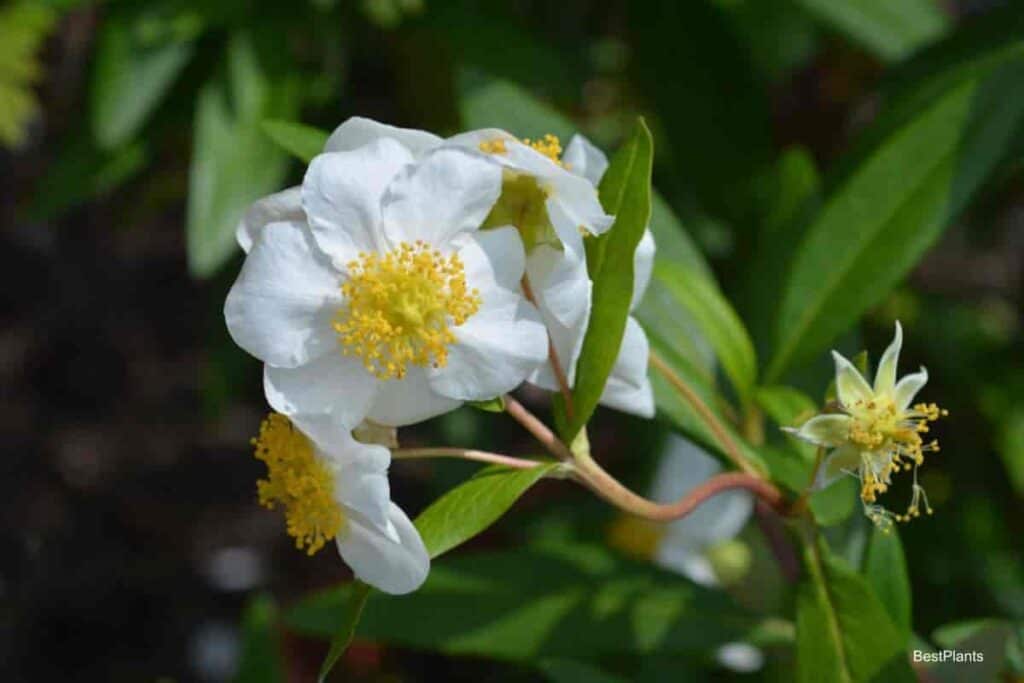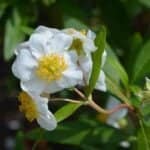Like franklinia and shortia, Carpenteria californica is one of the so-called “lost” plants—discovered, then unsuccessfully searched for, and at last rediscovered. In California it has been in cultivation for thirty-five years.

Because there are so few natural stands of bush anemone, it is probably one of the plants seen more often in gardens than in the fields. Though this lovely, long-lived evergreen bush belongs to the saxifrage family, its flowers resemble those of a large single, slightly recurved, white Japanese anemone.
The flower is 3” inches across, centered by a mound of golden stamens, and has a faint fragrance of musk. One to three dozen blossoms are carried at the ends of the numerous young twigs just beyond the narrow 4” inch leaves which are dark rich green above and gray beneath.
Since well-developed buds will bloom in water, it makes a splendid cut flower. In the field the bushes all flower in May. But blossom time varies in the garden owing to differences in soil, ex-bloom, and water timing.
I have had blooms, not on the same bush, from January into July. Exposure and moisture also affect the size of the shrub for it may be a 5’ foot bush with a 6’ foot spread or a 15’ foot bush with the same width. Bush anemone will endure the long summer drought, during which its leaves become dry, though still green and rolled in.
In the garden, bush anemone serves much the same use as Cistus laurifolius, though it grows taller and wider. Like the cistus it takes drought or water but only where drainage is perfect.
In spite of its being a native of the Sierra foothills (a 2000- to 5000-foot altitude), it makes an excellent coastal bush all the way up the Pacific Coast into Vancouver Island. It will take 15° degrees Fahrenheit. But in the Northwest, it should have the warmest possible place.
The increase usually results from seed—as fine as grains of dust—which ripen in August and September in the wild. Cuttings of green wood can be placed in sand and peat and kept warm; suckers can be removed and grown in containers.
44713 by Lester Rowntree
